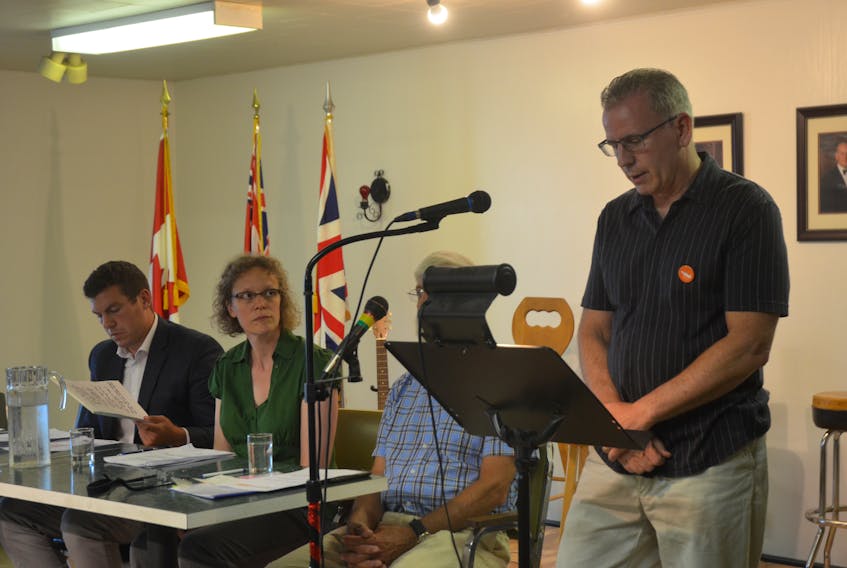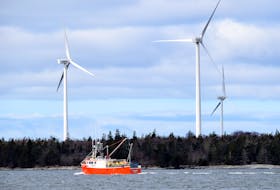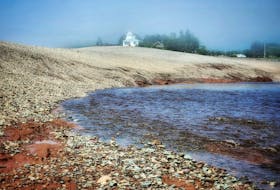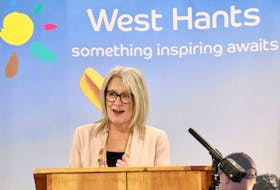WOLFVILLE, N.S. — Extinction Rebellion (XR) wants to know what the upcoming federal election candidates for Kings-Hants are going to do about the issue of climate change.
To find out, the group hosted one of two forums in Wolfville Aug. 13.
The first was in Windsor on July 30.
Green Party candidate Brogan Anderson,
Liberal candidate Kody Blois and NDP candidate Stephen Schneider sat down to answer a series of questions from XR themselves and an audience of about 120 people packed into the Royal Canadian Legion Branch 74 in Wolfville to hear what they had to say.
QUESTIONS
The forum consisted of four main questions the candidates answered in front of the audience. The following is a sample of some of the questions asked to candidates, along with their responses.
-
If you are elected, do you promise to reveal the truth about climate change and the climate crisis? How will we know this is being done?
In her response, Anderson stressed the need to stop fossil fuel use and reduce the world’s carbon footprint – things that have not happened.
“One truth is we are exceeding our planet’s capacity to sustain us,” Anderson said. “One truth is that 20 per cent of the world consumes 80 per cent of its resources. One truth is that those who suffer the worst effects of climate change are often those who contribute least to it.”
Anderson said people need to be made aware of the options they have to change for the better, and vowed to provide support to do that, noting her goal is to see net-zero carbon emissions by 2050.
Blois described climate change as “the defining issue of our generation,” noting that he is a part of the generation that will truly feel the impacts of climate change.
“The Liberal government has focused on addressing climate change as one of its top priorities,” Blois said, noting that Climate Minister Catherine McKenna introduced a motion in the House of Commons in June declaring a climate emergency.
Blois alluded to Liberal policies that he believes will make a tangible difference, such as a Low Carbon Economy Fund and other various investments, the Just Transition Task Force to help coal-dependent communities transition to cleaner energy and fuel standards to reduce carbon pollution.
Schneider responded to the question by saying, “Yes, climate change is an existential threat to the planet that, if left unchecked, can lead to cataclysmic results, including mass species extinction.”
-
If elected, will you work for Canada reaching the target of reducing carbon emissions to net-zero by 2025? How will we know if you are doing this?
Anderson stated the Canadian government has been inefficient at setting targets and meeting them.
She noted that phasing out of fossil fuels should have started 30 years ago.
“We are looking at a period of transition. People need to have time to retrain and move into different job sectors,” she said. “Infrastructure needs to be built to support a non-fossil-fuel-based economy, including mass transit options and a massive retrofit of existing building stock.”
Anderson said all initiatives to phase out carbon emissions must be supported by grants, loans and policies by the government. “We need to set targets and meet them, and you’ll know when we’re doing this by the fact that emissions will come down,” she added.

“One reality we have to face is that the environment and the economy aren’t mutually exclusive,” Blois said. “They work together in inextricable ways.”Blois envisioned a country that can support itself with good paying, clean-energy jobs, and said Pan-Canadian Framework on Clean Growth and Climate Change is the path to that.
Blois emphasized the need to make new and existing buildings more energy efficient, alluding to the Canada Infrastructure Bank’s investments in lower-carbon electricity systems like the Riverdale NetZero project in Edmonton, a home that runs on 6,500 watts of electricity for heat.
Schneider proposed criminalizing corporate activity that created environmental harm as way to get to net-zero by 2025.
Part of that, he noted, would include recognizing the environment and non-human species as victims of a crime and increasing penalties for corporations that are criminally negligent toward the environment.
“As an MP, I would also focus my energy at the local level, working with the provincial and municipal governments to reach the short-term goal of net-zero emissions in Kings-Hants,” Schneider said, noting that would be achieved through promoting zero-emission vehicles, energy retrofits to existing buildings and the promotion of environmentally sustainable agriculture.

Schneider also said practices like clear-cutting and fracking should be banned outright.
Conservative Candidate Martha MacQuarrie did not attend the event, and to the disappointment of XR members, did not directly answer any of the questions in a written response she submitted shortly before the Wolfville forum.
In a written statement to XR, MacQuarrie referenced the Conservative Party’s creation of a national parks system, the Canada-U.S. acid rain treaty and the Canadian Environmental Protection Act as examples of Conservative leadership in the area.
MacQuarrie stated that the Conservative Party’s plan entails green technology; work with farmers, hunters, anglerss, Indigenous people, province and territories to promote a cleaner natural environment and global leadership in reducing emissions.

SAM MACDONALD
THINKING ON THEIR FEET
After the candidates shared their responses to the main questions, XR members read several anonymously-submitted questions from the audience.
When one audience member asked if it makes sense for the government to buy a pipeline with taxpayer money when the world is moving to a zero-net-carbon economy, Blois noted the importance of a stable transition from fossil fuels in the economy to net-zero.
“It’s not going to happen overnight. The proceeds from that (pipeline) will be reinvested in clean energy,” Blois said, noting transporting oil by pipeline is less emission-intensive than transporting it by rail or truck.
“I know there are some people in this room who think tomorrow, we should shut down the Alberta oil sands, but our government plan is a transition. The pipeline is an investment tool to help resources continue toward a green economy and lower emissions.”
Both Schneider and Anderson disagreed with that perspective, with Schneider outright saying, “there is no need for oil pipelines because there’s no need for oil.”
Schneider stressed the importance of cutting dependence on fossil fuels, and shutting down oil development in Canada, noting, “You can’t have a serious climate strategy while subsidizing, building and buying pipelines.”
Anderson said she wants to see an end to oil subsidies from the government, and to see that money go into supporting renewables instead.
“We spent $4.5 billion on that pipeline and gave it to a Texan oil company. In order to make that pipeline useable, it would require $10 billion worth of upgrades,” Anderson said. “We want to move away from that model of development. The reason why our emissions continue to go up …and fail to meet targets is because of the tar sands in Alberta.”
Anderson added that the diluted bitumen is toxic and cleaning it up completely in the event of a spill may be unfeasible, adding, “there are massive risks … and it’s not acceptable.”
Another question from the audience sought ideas from the candidates for replacements for coal-generated power, aside from wind generation.
Anderson indicated small-scale wind generation and geothermal generation would be good sources.
“We need to be exploring tidal and figuring out what could work to provide for our needs locally here,” Anderson added.
Schneider stressed the need to look out-of-province to reduce Nova Scotia’s dependency on coal. He suggested a national electricity grid, tapping into alternative energy sources such as the hydroelectric power infrastructure in Newfoundland and Quebec.
Citing a three per cent increase in dependence on coal since 2017, Schneider said, “we have to be able to have a truly national east-to-west electrical grid, where we could tap into sources of power all over the country, not just locally in Nova Scotia.”
Blois made the counterpoint to that, suggesting that energy generation should incorporate local-level energy storage infrastructure.
“That will be a game-changer, and the way we can actually provide more local power,” he said.
Blois also indicated hydroelectric and solar power development are important avenues to take in reducing Nova Scotia’s coal dependency.









